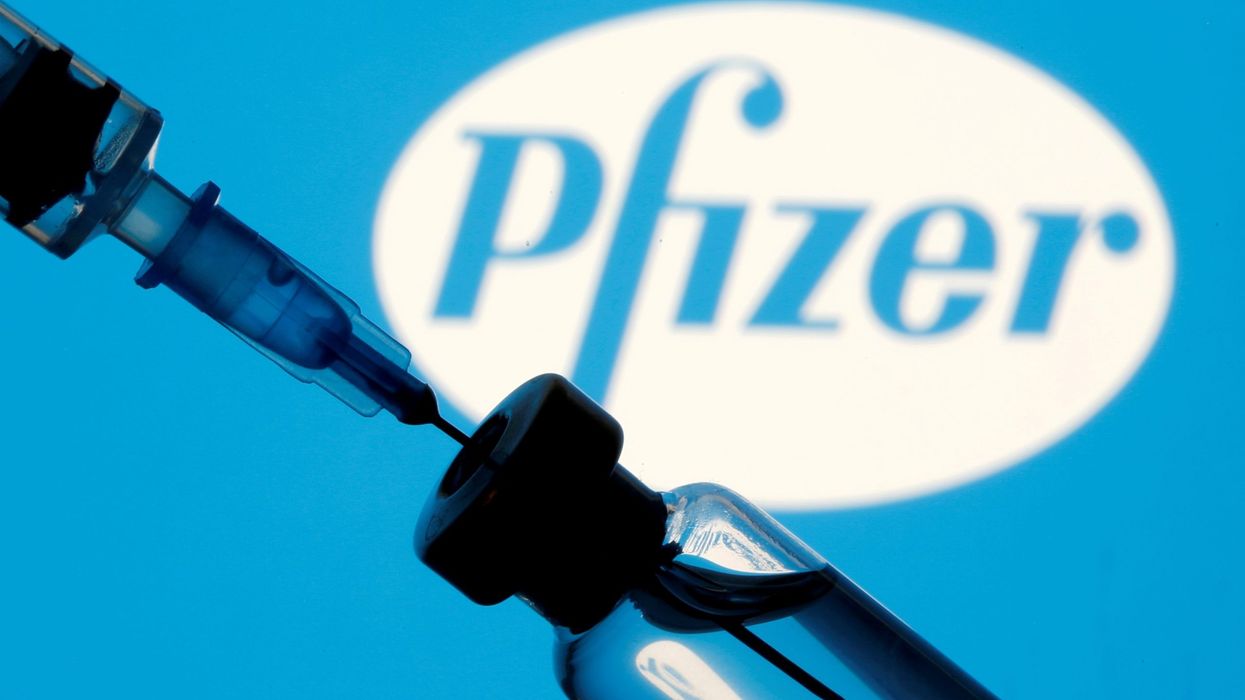PFIZER and the Indian government are seeking to resolve tensions over a demand by the US drugmaker for legal protection from any claims linked to the use of its Covid-19 vaccine in one of the world's biggest markets, two sources told Reuters.
India has not given any manufacturer of a Covid-19 vaccine indemnity against the costs of compensation for any severe side effects, which is a condition Pfizer has obtained in many countries where its shots have already been widely used, including Britain and the United States.
But three other sources told Reuters that some form of legal protection is still on the table as India and Pfizer work to reach a vaccine deal.
Reaching an agreement with Pfizer is critical for India's federal government, which is struggling to meet the need for Covid-19 vaccine doses as recorded daily cases exceed 250,000. Indian officials said this week that 98 per cent of its population of about 1.3 billion remains susceptible to infection.
India's foreign minister plans to visit the United States in the coming weeks in part to ease Pfizer's concerns, one of the sources said. He could offer Pfizer some form of protection from lawsuits in exchange for the company providing additional assistance with distributing its shots in India, two other sources said.
The Indian foreign ministry did not immediately respond to a request for comment.
One of the sources added that the two parties discussed the indemnity issue as recently as late this week but have not yet reached a resolution.
A Pfizer spokeswoman said that the company is still in talks with India on a deal and they have not reached an impasse, adding that Pfizer remains hopeful about reaching an agreement.
Pfizer has been consistent in its position on indemnity and is not planning to change its approach for a deal with India, one of the sources said. All of the sources declined to be identified because they are not authorised to speak to the media.
India's health ministry did not reply to Reuters requests for comment on Friday (21).
India pledged last month to fast-track approvals for overseas vaccine makers including Pfizer, Moderna and Johnson and Johnson.
However, none have since sought permission from India's drug regulator to sell their vaccine there.
One source said that another issue being discussed between Pfizer and New Delhi was the Indian government's insistence on a local trial for any vaccine approval. The source added that Pfizer cannot finalise terms of a supply agreement, including indemnity, if the vaccine is not first authorised for use in India.
Pfizer withdrew its application for emergency use authorisation for the vaccine developed with Germany's BioNTech in February after India insisted on such a trial.
But three other shots on sale in India, developed by AstraZeneca, Russia's Sputnik V and Bharat Biotech in collaboration with state-run Indian Council of Medical Research, have completed the small-scale safety trials.
Pfizer's chief executive Albert Bourla said on May 4 that he was hopeful that the government would change its policy of local trials and that a path to delivering the drugmaker's shots in India could be found.




